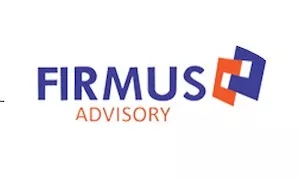Several local entities go into technology transfer agreements or management services agreements with foreign entities for the use of their technologies and services in Ghana. These agreements normally require that regular payments are made by the local entities for the use of these technologies or services. These agreements sometimes cover a locally registered foreign company and their parent/external company or a Ghanaian company and a foreign company.
It is required by law that such agreements are registered with the Ghana Investment Promotion Centre (GIPC). The GIPC is the state agency for the promotion of investments into Ghana and is also mandated to register all Technology Transfers Agreements (TTAs) between a local entity (referred to transferee) and a foreign entity (referred to as the transferor).
Two legislations generally apply to technology transfers in the Ghanaian economy. These are the GIPC ACT 2013, ACT 865 which requires the GIPC to keep records and monitor all technology transfer agreements in Ghana. The second is TECHNOLOGY TRANSFER REGULATIONS, 1992, L.I. 1547 which spells out the terms and conditions applicable to technology transfer agreements.
What are the types of TTAs that must be registered?
The following categories of services between a parent or external company and their affiliate or subsidiary are required to be registered under the GIPC Act and in accordance with the Technology Transfer Regulations.
- Industrial property: this has to do with trademarks, tradenames, licences, patents among others
- Technical expertise: provision of technical expertise relating to feasibility studies, plans, diagrams, models' formulae
- Know -how: this involves knowledge for the use in installing machinery and equipment, immediate goods and raw material
- Managerial services and personnel training: this involve the day to day management of a local company by a foreign entity or provision of training programme over a period to a local company.
Key requirements for Technology Transfer Agreement Registration
For a TTA to hold, the following must be satisfied;
- The Technology Transfer Agreement (TTA) must be between a Ghanaian incorporated company (Transferee) and foreign based company (Transferor)
- The duration of the TTA should be more than 18 (eighteen) months
- Payment for the technology is transferred by the Transferee through the banking system
- The technology under the TTA must not be freely and easily available in Ghana.
- Initial duration of a registered TTA is a maximum of 10 years.
- A TTA may be renewed for a period not exceeding 5 years after the expiration of the initial TTA.
- The Transferor of the technology must provide training to the Transferee and its employees to ensure effective utilization of the technology. Training programme must contain the following;
Payment to the Transferor
Usually for a TTA, these are the limits to the fees that can be charged by a transferor. The law in Ghana basically provides a threshold for transfer of fees, and that even though it does not say how much a company can transfer, it stipulates that companies should not transfer above a percentage of their net sales.
| No | Technology Type | Allowable charges |
| 1 | Royalties for Intellectual Property | 0-6% of net sales* |
| 2 | Technical Services/ Assistance | 0-3% of net sales |
| 3 | Know-how | 0-2% of net sales |
| 4 | Management Services | 0-2% of profit before tax |
| 5 | Where a transferor provides management or technical services, in addition to patents know-how and trademarks, the total fee shall not exceed 8% of net sales. | |
*Net sales for the purpose of Technology Transfer means , ex-factory selling price of the product exclusive of sales tax and excise duties levied by Government or the net income accruing from a service, minus the landed cost or payment for any component, materials and supplies imported from the technology supplier other than initial capital equipment and the first round of components, materials and supplies imported therefrom.
Any request for fees higher than the upper levels specified above shall be subject to the approval of the Centre.
To view the article in full click here
The content of this article is intended to provide a general guide to the subject matter. Specialist advice should be sought about your specific circumstances.

